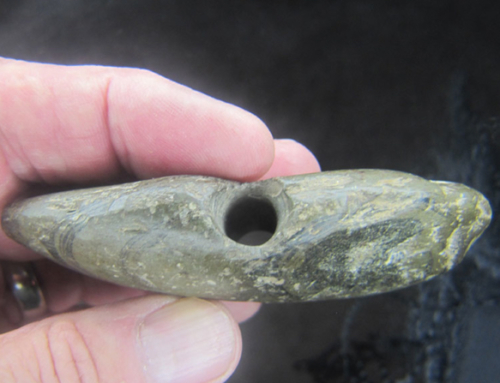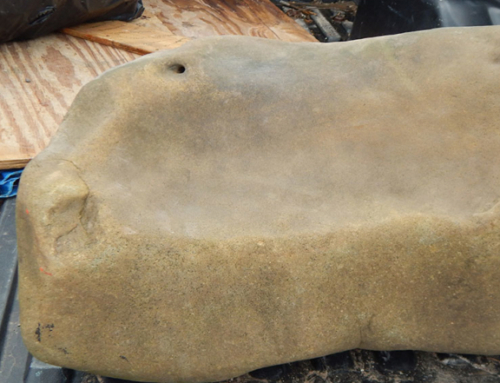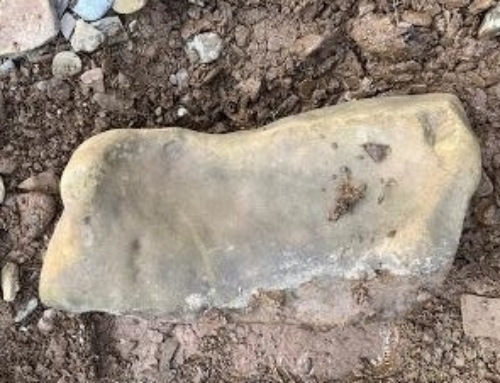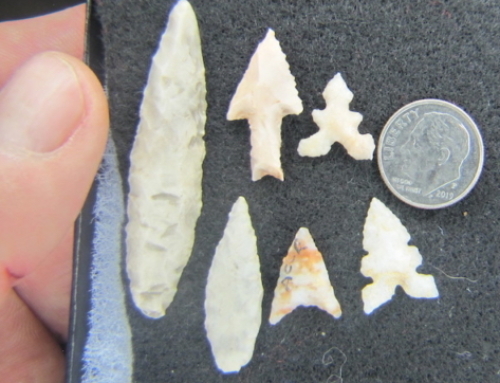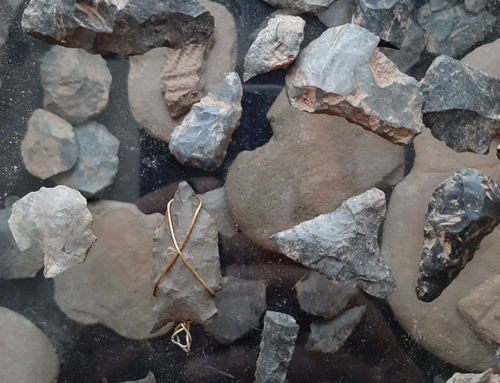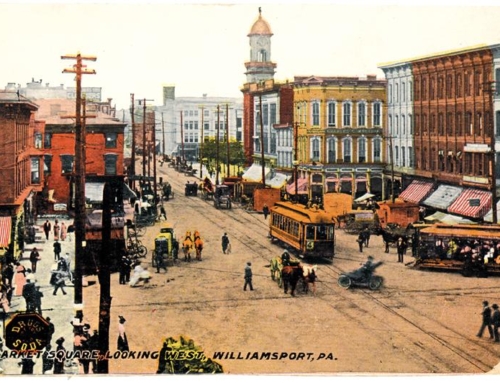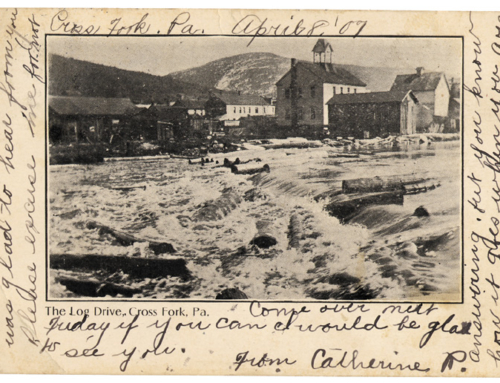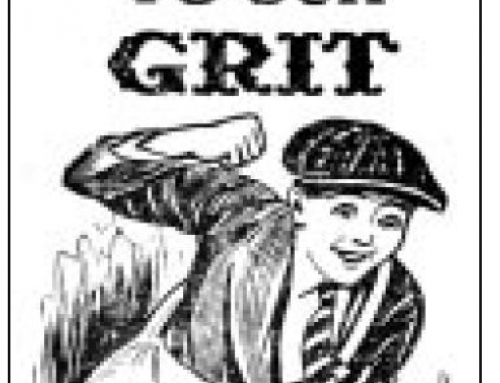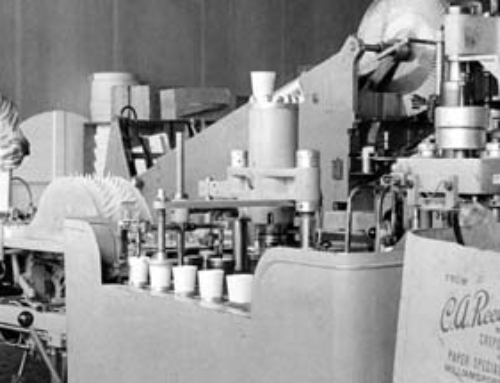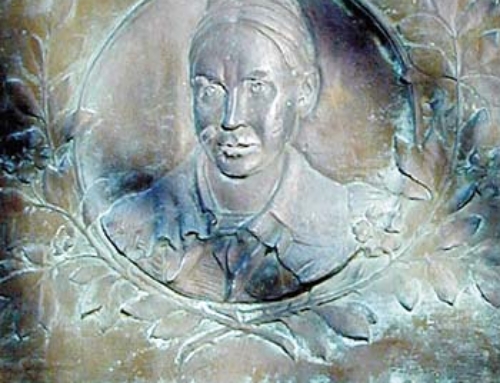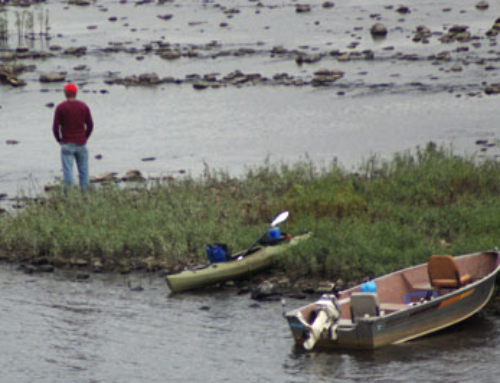“In this world nothing is certain but death and taxes.”
~ Benjamin Franklin
Yes—it is certain. Our days on this earth are numbered. Most of us will live a long, interesting, and fulfilling life. Some of us, unfortunately, will die suddenly, mysteriously, or violently. In those cases, that is the time when the county Coroner comes into the picture.
A Little History Lesson
Even before they were known as Coroners, people were selected to investigate deaths in the community. The office of “Coroner,” however, originated in England around 1100-1200 A.D. when these investigators were known as “crowners.” They were appointed by the Crown to investigate violent, unexplained deaths and to make sure that any property that was left by the deceased was added to the treasure trove of the King of England. The Latin word for crown is “corona,” which is why the office became known as “Coroner.”
Determining the cause of deaths would also be important in the New World. It is believed that William Penn appointed one of the first Coroners in the American colonies in 1682 after a dead body was found on a river bank. The early American Coroners, like their English counterparts, tried to use as much common sense as possible since most did not have a medical background. In some cases, however, they simply made guesses, in part because the only requirement for a Coroner was proof that he was not an ex-convict! This Coroner system was used as the country grew, and Coroners were elected in all of the original 13 colonies. As the new states and territories developed, Coroners were elected to be county officers, comparable to sheriffs, with whom they often traded places.
The Coroners of the County
The following historical information was taken from the “History of Lycoming County Pennsylvania” edited by John F. Meginness (1892).
The city of Williamsport was formed in 1795, the same year that Lycoming County was organized. It does not appear that Lycoming County had a regularly elected Coroner for the first three years of its existence. But in 1798, it is recorded that Henry Dougherty was Lycoming County’s first elected Coroner.
Deaths by accidents and other causes were quite frequent in early times. The first record of a Coroner’s inquest was held for a man who drowned in the Susquehanna River in 1798. Others followed, including a farmer who was killed in 1799 by being run over by an ox team.
On December 22, 1804, a man was found lying dead on State Road. It was brought out at the inquest conducted by coroner John Brooks that the victim: “walked to the place where he was found, having staid [sic] the night before at the house of Norris. He lay down, placed a handkerchief under his head, and perished by severe cold.”
The following year, Brooks also investigated the death of a man who drowned in an attempt to cross Pine Creek with a four-horse team. The two rear horses were also drowned. In 1807, an inquest was conducted by Coroner Apollos Woodward at a home in Newberry, on the body of a man who was “killed by a tree falling on him.” In 1808, an inquest was held on the body of a woman; verdict: she “came to her death by the abuse and ill-treatment of her husband.”
During the 1800s, a new Coroner was elected every three years in Lycoming County. These Coroners investigated many deaths including that a man who hanged himself in jail with a saddle girth, and a resident who committed suicide by cutting off his tongue with a razor “while in a state of insanity” in 1848.
In some counties, the Coroner system fell into disrepute, partly because it was an elective office, and partly because Coroners did not need any qualifications, legal or medical. But in 1859, Dr. George W. Wood was elected the county’s first doctor to become Coroner. And, throughout most of the 20th century, every Coroner was a doctor, including Dr. Earl R. Miller who was elected in 1958 and held office for 20 years.
Our current coroner, Charles Kiessling, began his career in the Coroner’s Office in 1986 when he was appointed as Deputy Coroner. In 1997 and 1998, Chuck filled in as Acting Coroner until Dave Schultz’s appointment in 1999. Chuck was ultimately elected to the Coroner’s position and began his term in 2000 and was re-elected in the fall of 2003.
Chuck’s education (he is an RN and has earned a BS in Nursing) and experience in the medical field is a very valuable asset when he is called upon to determine the cause of deaths and perform related investigations. But, Chuck estimates that, surprisingly, about 70% of the coroners in the state are funeral home directors. This is reminiscent of the old custom of electing coroners who were furniture- or cabinetmakers…and, conveniently, quite proficient in making wooden caskets!
In addition to his formal education, Chuck has also attended the forty-hour Coroner’s Basic Education course that culminates in a certification exam. Continuing education courses, assorted seminars, and conferences punctuate Chuck’s schedule—which only serves as a reprieve from those telephone calls 24 hours a day, 7 days a week, requesting his presence when a death has occurred.
“When I grow up, I want to be…”
Probably not many kids dream about becoming a Coroner. But, obviously, many people are elected to the position and become committed to serving their community in that capacity. Question: So, exactly what does a Coroner do? And when should he be called? Answer: According to the Pennsylvania Statutes pertaining to the Office of the Coroner, Section 1237; the Coroner must be notified to investigate the circumstances concerning deaths to determine the identification of the deceased, cause and manner of death, and whether an autopsy should be conducted. Deaths that require Coroner’s investigation are sudden or unexpected, medically unattended, suspicious, or violent deaths. The coroner is also empowered to conduct an inquest and subpoena witnesses in deaths that may have resulted from criminal action or a negligent act. Specifically, the Coroner is called to investigate:
- Death of unknown cause
- Death occurring under suspicious circumstances, including alcohol, drugs, etc.
- Unidentified or unclaimed body
- Death due to known/suspected contagious disease/constitutes a public hazard
- Operative and peri-operative deaths
- Death occurring in prison or while in the custody of the police
- Death of persons to be cremated or buried at sea
- Sudden infant death syndrome and stillbirths
The Coroner is also responsible for maintaining the security of the scene, determining medical history, notifying the next of kin, retaining the property on or about the deceased until the family can claim it, and, issuing death certificates. There are over 1,200 deaths in the county per year, of which about 300 are referred to the Coroner’s Office. Of those, about 10% of them require autopsies of the decedent. This means that the Coroner spends about 30 days a year transporting bodies to the Lehigh Valley Hospital in Allentown, where autopsies are performed. He may assist in the autopsy process and determination of cause and manner of death, whether natural, accidental, suicide, homicide, or undetermined, and then transports the body back to the county.
Ten Years of Progress
The Coroner’s present office on the fourth floor of the Executive Plaza building is a far cry from his first office on the fourth floor of the courthouse—next to the DA’s office. Starting in 1997 with a staff of only two part-time deputies, Chuck has transformed the Coroner’s Office into an active and valuable asset to the community with a contingent of eight individuals who serve as Deputy Coroners, each with specialized backgrounds in forensic evidence collection, sexual assault, forensic dental identification, and state police training. The department also has full-time clerical assistance which provides the necessary support that this busy office demands on a daily basis.
CSI Lycoming?
It’s nothing like the flashy, state-of-the-art facilities depicted on the popular TV shows but the former morgue at the Williamsport Hospital was renovated and opened in 2003 as an updated Forensic Center. There is now a decedent viewing area and a larger space for holding decedents pending autopsy completion and release to funeral homes.
Although it is still necessary to send many toxicology tests and other lab work out of the area for processing (which often takes up to 12 weeks until results are received), the Forensic Center in Williamsport offers a place where some procedures can be completed locally.
Most recently, the Coroner’s Office is looking forward the future collaboration with Dr. Daniel Hill, who has retired as a Clinical Pathologist and has agreed to assist the Coroner’s Office by performing autopsies locally in the Forensic Center. Dr. Hill’s expertise will aid to further the level of death investigation capabilities available in the Coroner’s Office.
Saving the Children
In an effort to prevent unnecessary and accidental deaths of children in the county, the Coroner and Beth Wilson, Deputy Coroner and retired state trooper, formed the county’s Child Death Review Team in 2001. Representatives from the District Attorney’s Office, County law enforcement, Department of Health, Safe Kids, highway safety, fire prevention, mental health, area physicians, and others meet regularly to review cases of child deaths in the county.
Targeting areas of specific concern, such as water safety during the summer or teen driving during the prom season, programs of community awareness and education are then offered to the public.
Most recently, a program spearheaded by the Coroner’s Office was presented to schools regarding county teenagers—twenty-nine of whom were killed in car crashes between 2000 and 2005. According to the Coroner, most of the crashes were caused by driver error including:
- Excess speed (62% of the 29 teen deaths)
- Lack of seat belt usage (42%)
- Alcohol usage (14% of the 29 teen deaths and nearly 50% of all highway deaths in Lycoming County)
Other factors that lead to deadly motor vehicle crashes are distractions such as radios, cell phones, and other persons in the teen’s vehicle.
Community Service
The Office of the Coroner also provides educational programs including DUI education, Highway Safety, Drug and Alcohol Awareness, Crime Scene and Death Investigative Procedures, and others as requested. For more information about the department’s services and programs, please contact the Coroner’s Office at 570-327-2305.
By Joan Blank
~ information for portions of this article provided by the Lycoming County Coroner’s Office; text written by Joan Blank for the Sept. 1, 2006, edition of the “County News” – the quarterly newsletter for employees of Lycoming County, published by the Human Resources Office, County of Lycoming.
The following historical information was taken from the “History of Lycoming County Pennsylvania” edited by John F. Meginness (1892).
The city of Williamsport was formed in 1795, the same year that Lycoming County was organized. It does not appear that Lycoming County had a regularly elected Coroner for the first three years of its existence. But in 1798, it is recorded that Henry Dougherty was Lycoming County’s first elected Coroner.
Deaths by accidents and other causes were quite frequent in early times. The first record of a Coroner’s inquest was held for a man who drowned in the Susquehanna River in 1798. Others followed, including a farmer who was killed in 1799 by being run over by an ox team.
On December 22, 1804, a man was found lying dead on State Road. It was brought out at the inquest conducted by coroner John Brooks that the victim: “walked to the place where he was found, having staid
[sic] the night before at the house of Norris. He lay down, placed a handkerchief under his head, and perished by severe cold.”
The following year, Brooks also investigated the death of a man who drowned in an attempt to cross Pine Creek with a four horse team. The two rear horses were also drowned. In 1807, an inquest was conducted by Coroner Apollos Woodward at a home in Newberry, on the body of a man who was “killed by a tree falling on him.” In 1808, an inquest was held on the body of a woman; verdict: she “came to her death by the abuse and ill treatment of her husband.”
During the 1800s, a new Coroner was elected every three years in Lycoming County. These Coroners investigated many deaths including that a man who hanged himself in the jail with a saddle girth, and a resident who committed suicide by cutting off his tongue with a razor “while in a state of insanity” in 1848.
In some counties, the Coroner system fell into disrepute, partly because it was an elective office, and partly because Coroners did not need any qualifications, legal or medical. But in 1859, Dr. George W. Wood was elected the county’s first doctor to become Coroner. And, throughout most of the 20th century, every Coroner was a doctor, including Dr. Earl R. Miller who was elected in 1958 and held the office for 20 years.
 Our current coroner, Charles Kiessling, began his career in the Coroner’s Office in 1986, when he was appointed as Deputy Coroner. In 1997 and 1998, Chuck filled in as Acting Coroner until Dave Schultz’s appointment in 1999. Chuck was ultimately elected to the Coroner’s position and began his term in 2000 and was re-elected in the fall of 2003.
Our current coroner, Charles Kiessling, began his career in the Coroner’s Office in 1986, when he was appointed as Deputy Coroner. In 1997 and 1998, Chuck filled in as Acting Coroner until Dave Schultz’s appointment in 1999. Chuck was ultimately elected to the Coroner’s position and began his term in 2000 and was re-elected in the fall of 2003.
Chuck’s education (he is an RN and has earned a BS in Nursing) and experience in the medical field is a very valuable asset when he is called upon to determine the cause of deaths and perform related investigations. But, Chuck estimates that, surprisingly, about 70% of the coroners in the state are funeral home directors. This is reminiscent of the old custom of electing coroners who were furniture- or cabinetmakers…and, conveniently, quite proficient in making wooden caskets!
In addition to his formal education, Chuck has also attended the forty-hour Coroner’s Basic Education course that culminates in a certification exam. Continuing education courses, assorted seminars and conferences punctuate Chuck’s schedule—which only serve as a reprieve from those telephone calls 24 hours a day, 7 days a week, requesting his presence when a death has occurred.
“When I grow up, I want to be…”
Probably not many kids dream about becoming a Coroner. But, obviously, many people are elected to the position and become committed to serving their community in that capacity. Question: So, exactly what does a Coroner do? And when should he be called? Answer: According to the Pennsylvania Statutes pertaining to the Office of the Coroner, Section 1237; the Coroner must be notified to investigate the circumstances concerning deaths to determine the identification of the deceased, cause and manner of death and whether an autopsy should be conducted. Deaths that require Coroner’s investigation are sudden or unexpected, medically unattended, suspicious or violent deaths. The coroner is also empowered to conduct an inquest and subpoena witnesses in deaths that may have resulted from criminal action or a negligent act. Specifically, the Coroner is called to investigate:
- Death of unknown cause
- Death occurring under suspicious circumstances, including alcohol, drugs, etc.
- Unidentified or unclaimed body
- Death due to known/suspected contagious disease/constitutes a public hazard
- Operative and peri-operative deaths
- Death occurring in prison or while in custody of the police
- Death of persons to be cremated or buried at sea
- Sudden infant death syndrome and stillbirths
The Coroner is also responsible for maintaining the security of the scene, determining medical history, notifying the next of kin, retaining the property on or about the deceased until the family can claim it, and, issuing death certificates. There are over 1,200 deaths in the county per year, of which about 300 are referred to the Coroner’s Office. Of those, about 10% of them require autopsies of the decedent. This means that the Coroner spends about 30 days a year transporting bodies to the Lehigh Valley Hospital in Allentown, where autopsies are performed. He may assist in the autopsy process and determination of cause and manner of death, whether natural, accidental, suicide, homicide, or undetermined, and then transports the body back to the county.
Ten Years of Progress
The Coroner’s present office on the fourth floor of the Executive Plaza building is a far cry from his first office on the fourth floor of the courthouse—next to the DA’s office. Starting in 1997 with a staff of only two part-time deputies, Chuck has transformed the Coroner’s Office into an active and valuable asset to the community with a contingent of eight individuals who serve as Deputy Coroners, each with specialized backgrounds in forensic evidence collection, sexual assault, forensic dental identification and state police training. The department also has full-time clerical assistance which provides the necessary support that this busy office demands on a daily basis.
CSI Lycoming?
It’s nothing like the flashy, state-of-the-art facilities depicted on the popular TV shows but the former morgue at the Williamsport Hospital was renovated and opened in 2003 as an updated Forensic Center. There is now a decedent viewing area and a larger space for holding decedents pending autopsy completion and release to funeral homes.
Although it is still necessary to send many toxicology tests and other lab work out of the area for processing (which often takes up to 12 weeks until results are received), the Forensic Center in Williamsport offers a place where some procedures can be completed locally.
Most recently, the Coroner’s Office is looking forward the future collaboration with Dr. Daniel Hill, who has retired as a Clinical Pathologist and has agreed to assist the Coroner’s Office by performing autopsies locally in the Forensic Center. Dr. Hill’s expertise will aid to further the level of death investigation capabilities available in the Coroner’s Office.
Saving the Children
In an effort to prevent unnecessary and accidental deaths of children in the county, the Coroner and Beth Wilson, Deputy Coroner and retired state trooper, formed the county’s Child Death Review Team in 2001. Representatives from the District Attorney’s Office, County law enforcement, Department of Health, Safe Kids, highway safety, fire prevention, mental health, area physicians, and others meet regularly to review cases of child deaths in the county.
Targeting areas of specific concern, such as water safety during the summer or teen driving during the prom season, programs of community awareness and education are then offered to the public.
Most recently, a program spearheaded by the Coroner’s Office was presented to schools regarding county teenagers—twenty-nine of whom were killed in car crashes between 2000 and 2005. According to the Coroner, most of the crashes were caused by driver error including:
- Excess speed (62% of the 29 teen deaths)
- Lack of seat beat usage (42%)
- Alcohol usage (14% of the 29 teen deaths and nearly 50% of all highway deaths in Lycoming County)
Other factors that lead to deadly motor vehicle crashes are distractions such as radios, cell phones, and other persons in the teen’s vehicle.
Community Service
The Office of the Coroner also provides educational programs including DUI education, Highway Safety, Drug and Alcohol Awareness, Crime Scene and Death Investigative Procedures and others as requested. For more information about the department’s services and programs, please contact the Coroner’s Office at 570-327-2305.
By Joan Blank
~ information for portions of this article provided by the Lycoming County Coroner’s Office; text written by Joan Blank for the Sept. 1 2006 edition of the “County News” – the quarterly newsletter for employees of Lycoming County, published by the Human Resources Office, County of Lycoming.



